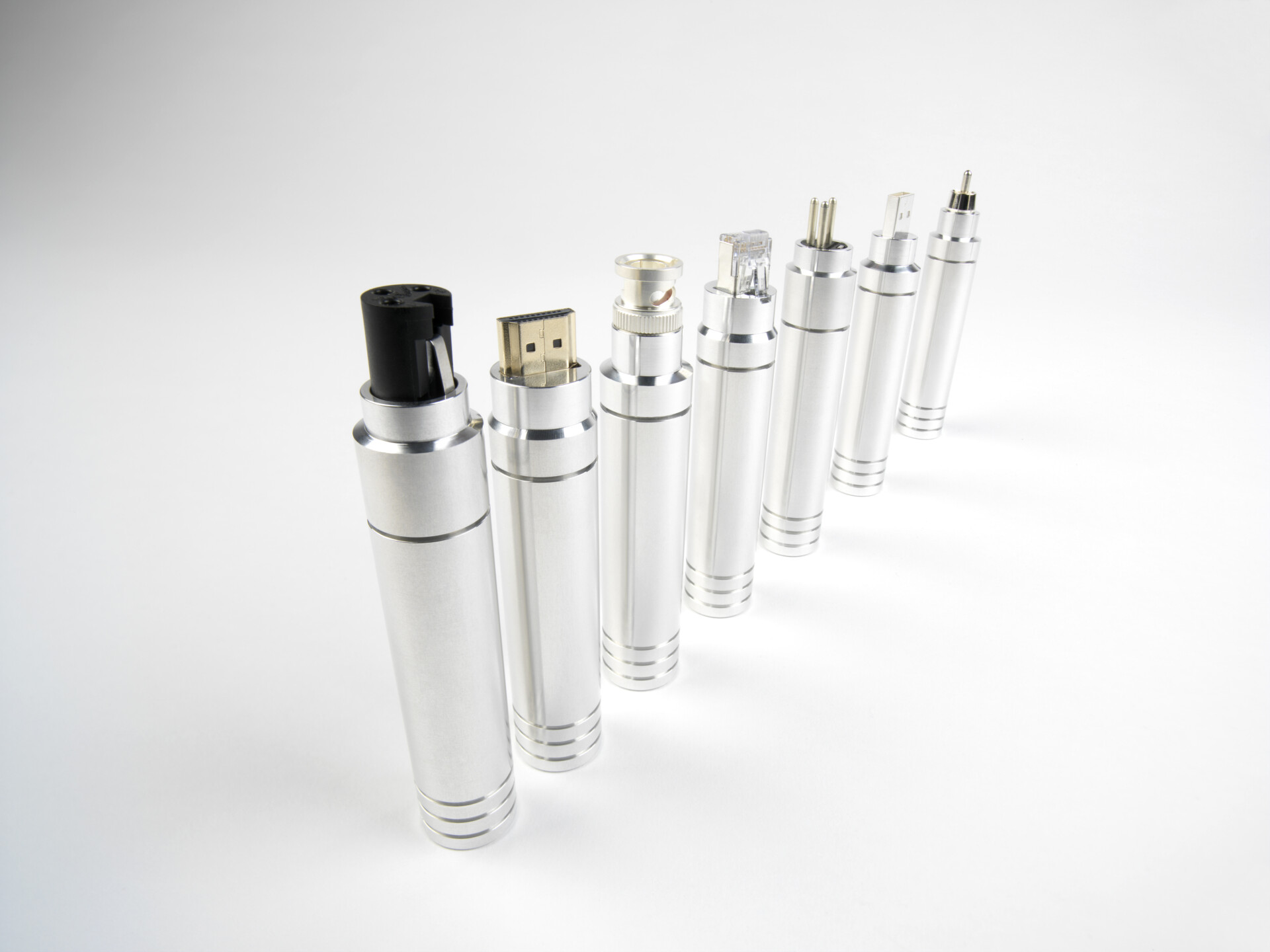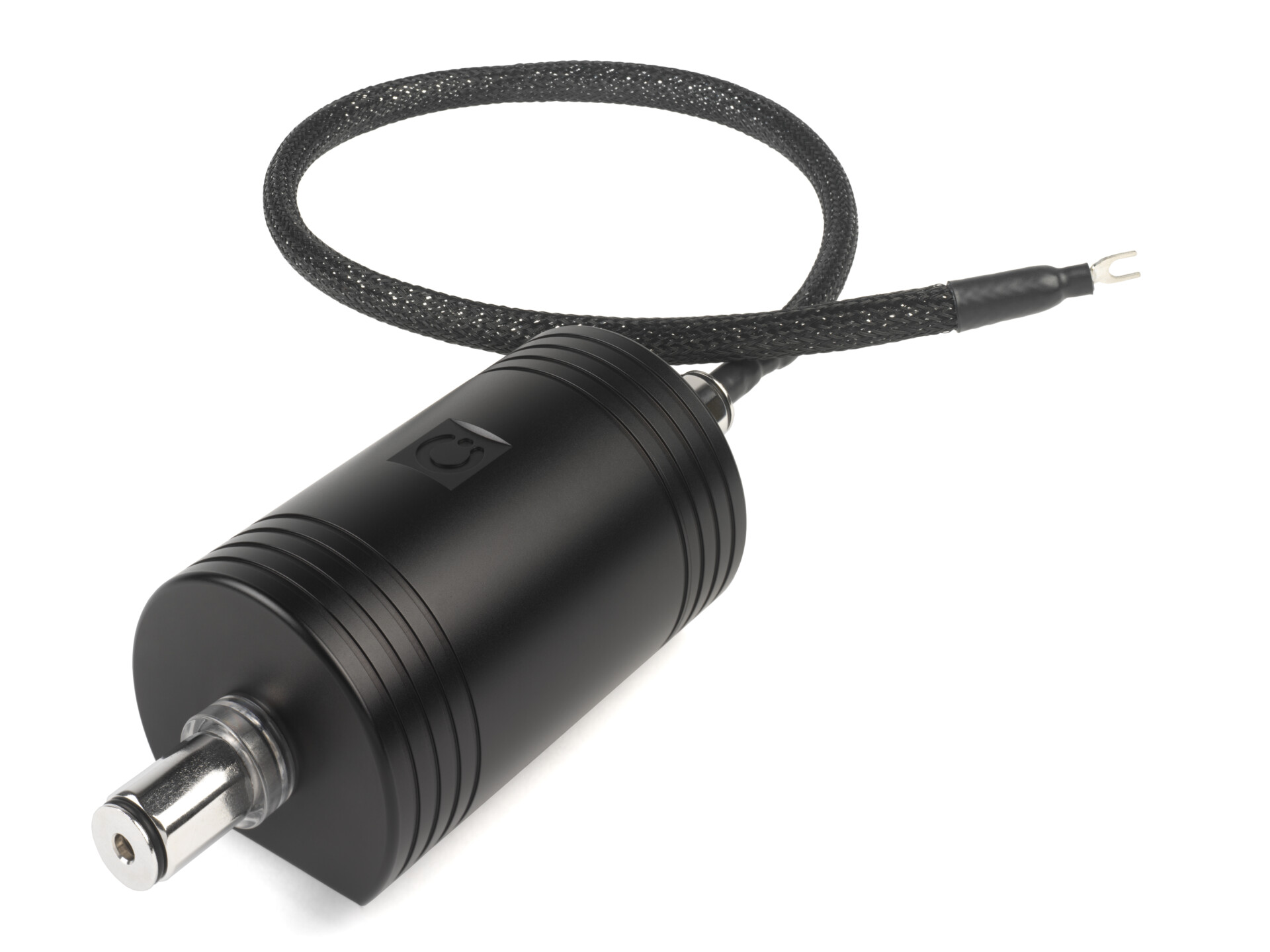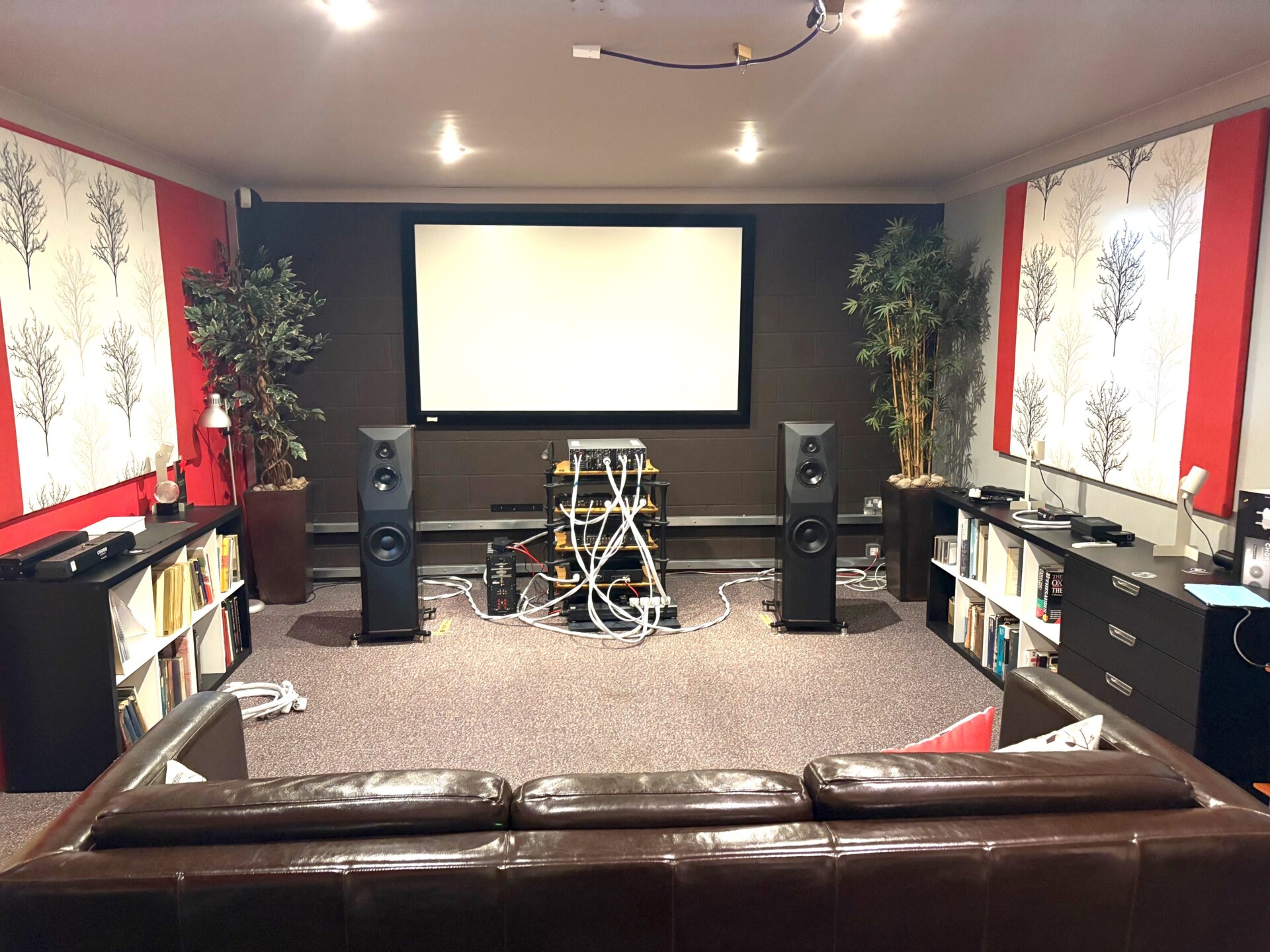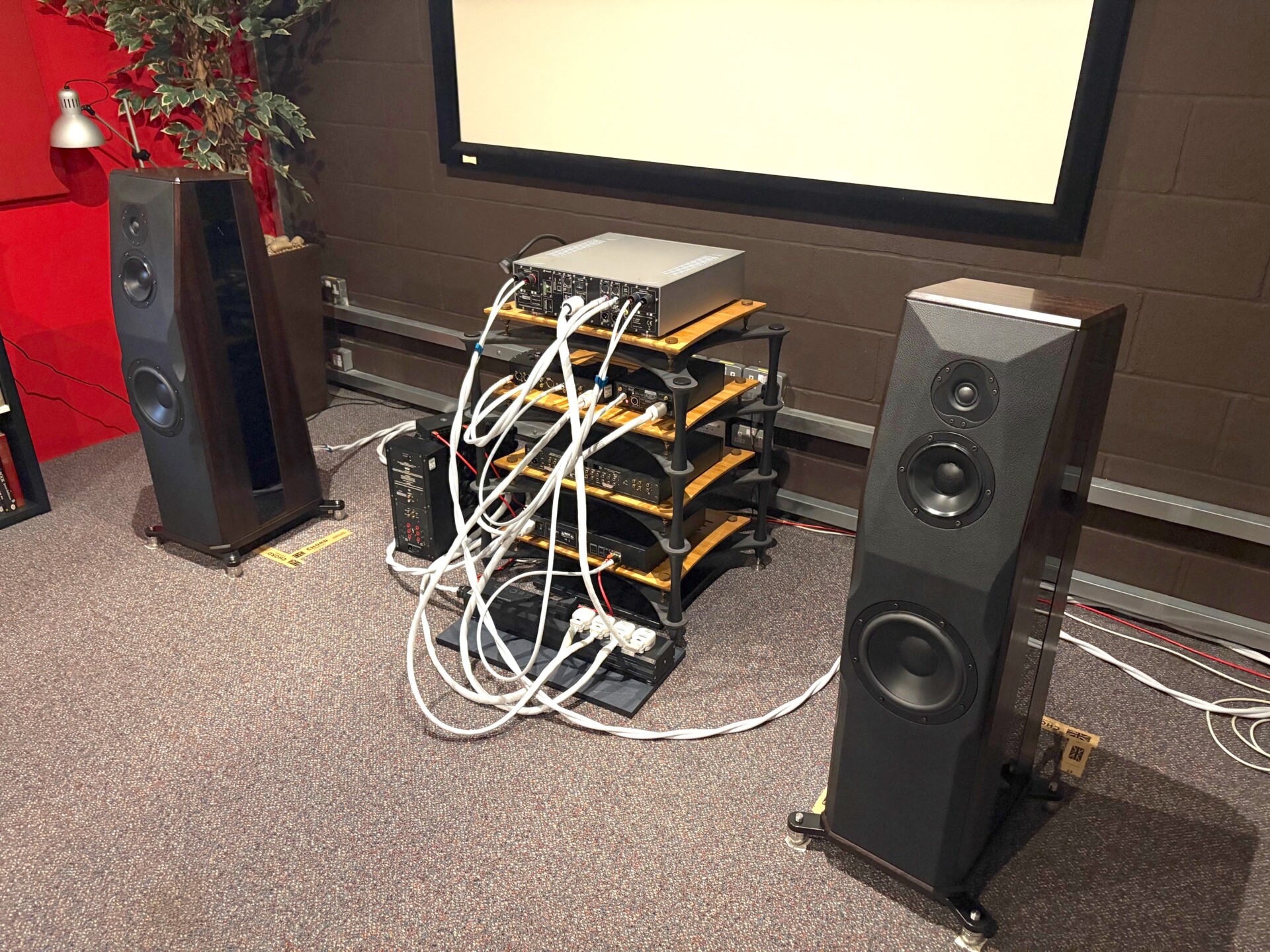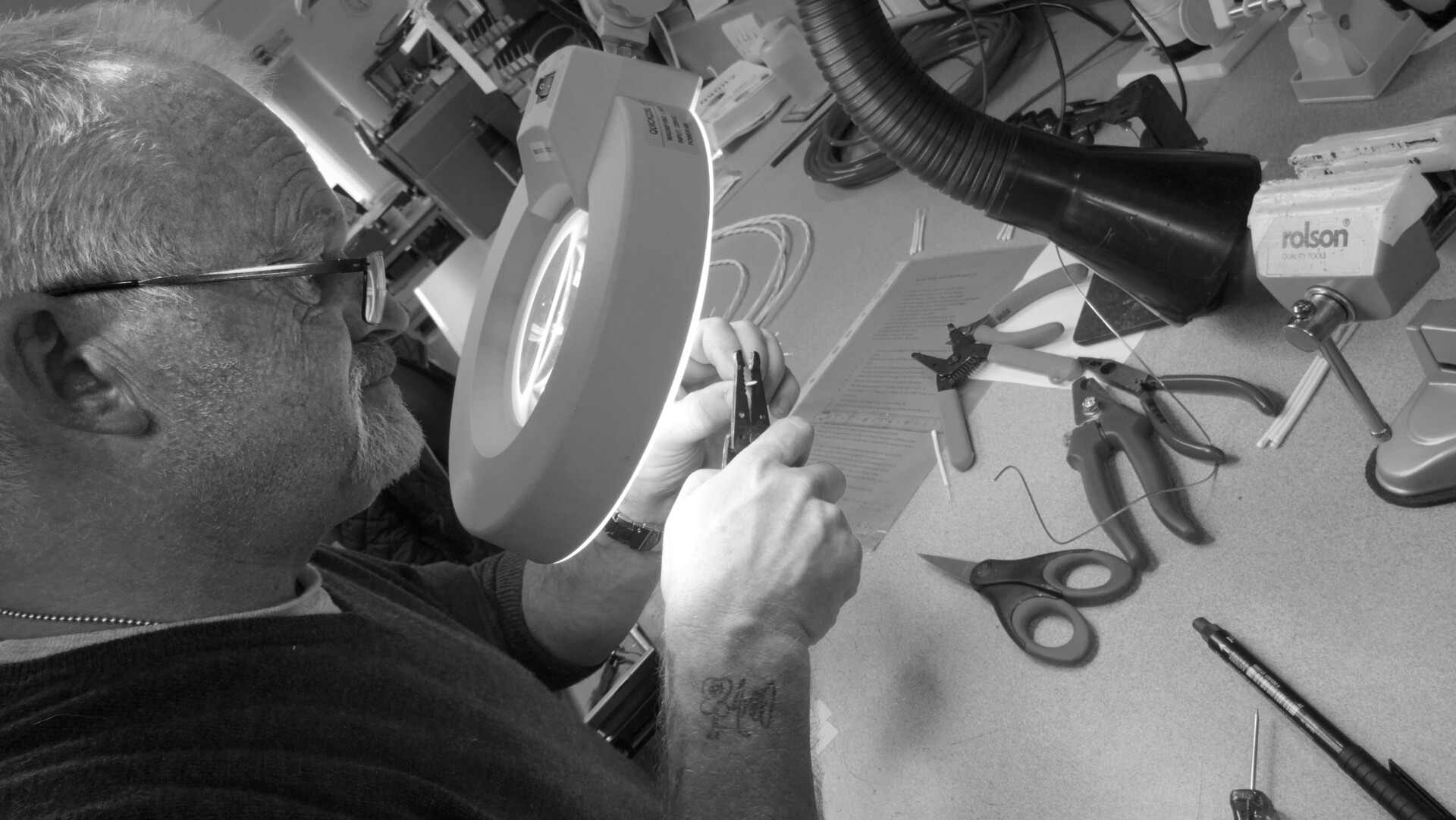
Meanwhile, the company remains well aware of its roots and still offers a complete range of Din-terminated cables, as well as Burndy power umbilicals for Naim amps and dedicated cable solutions for other popular products with external power supplies, from the likes of Rega and Melco. It’s also ready, willing and able to facilitate intercourse in the case of some unusual, bastard marriage between new and old products, or simply those with strange sockets spread across their rear ends. If you find yourself in need of the off-beat or plain improbable when it comes to cabling, Chord might well be the best, or even the only, game in town.
But as I’ve already mentioned, there’s more to Chord than simply cables. The company offers a complete, innovative and distinctly different suite of system grounding solutions. The GroundARAY plug-ins, small, cylindrical units that connect directly to unused sockets on equipment, aiming to soak up spurious ground noise, are as neat as they are effective. But they also demonstrate Chord’s open-minded (or lateral) approach to audio’s problems. While other manufacturers offered centrally located grounding boxes, with multiple terminals, Chord saw the trailing wires that both act as aerials – potentially adding to the problem – and turning the back of even the neatest systems into a veritable snake pit. Instead, they chose to go the more direct route, killing noise at source. It’s an approach that they’ve extended to the impressive PowerARAY (dedicated to mopping up noise pollution on the incoming AC line) and their PowerHAUS distribution blocks. Similar concerns with system noise have seen them launch a network switch and ethernet filters under the English Electric brand banner, while their network cables were amongst the first to eschew the continuous ground topology of the Cat 8 standard, using Faraday cages to provide effective shielding without the issues of noise transmission within the network. That’s currently, fast becoming one of the hot topics when it comes to optimising file replay or streaming systems – but Chord was years ahead of this particular debate.
These days, The Chord Co. employs 26 full-time staff as well as a dedicated group of out-workers. While their insistence on hand-building and quality control imposes its own constraint on bandwidth/growth, the company’s products are still represented in 74 different global markets. That makes it one of the largest and most successful independent audio companies in the UK. Who’d a thunk?
Meanwhile, with products like the PowerARAY and PhonoARAY opening new market areas – and winning new, serious customers – the time is ripe for the company to exploit the demonstrable performance benefits of the ChordMusic and Sarum T cables, products that easily challenge higher-profile offerings at many times their (relatively) modest prices. In fact, even if the company only offered the PowerARAY and PhonoARAY, it would still be time for the wider, high-end market to start taking them very seriously indeed. Add to that, the fact that they make a whole family of cables that offer consistently excellent musical performance at their respective prices and the potential is obvious. That the performance is based on solid engineering, a consistent approach and sound practice is doubly reassuring.

